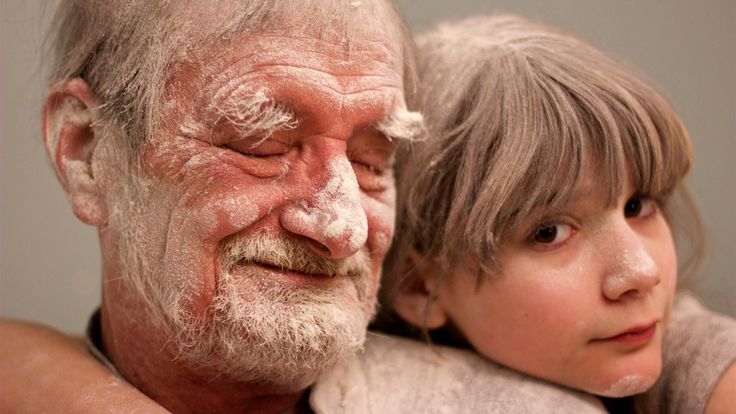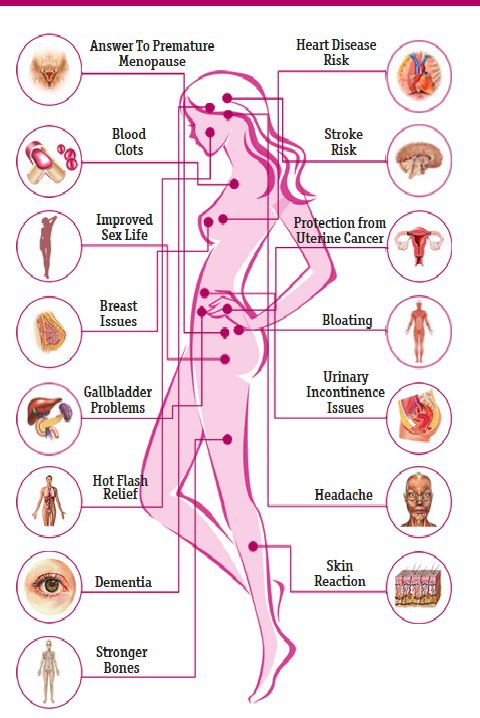Why abuse victims stay silent
Why People Stay in an Abusive Relationship
Abusive relationships are extremely complex situations and it takes a lot of courage to leave. Abuse is about power and control. When a survivor leaves their abusive relationship, they threaten the power and control their partner has established over the survivor’s agency, which may cause the partner to retaliate in harmful ways.
As a result, leaving is often the most dangerous period of time for survivors of abuse.
Fear
A person will likely be afraid of the consequences if they decide to leave their relationship, either out of fear of their partner’s actions or concern over their own ability to be independent.
Normalized abuse
If someone grew up in an environment where abuse was common, they may not know what healthy relationships look like. As a result, they may not recognize that their partner’s behaviors are unhealthy or abusive.
Shame
It can be difficult for someone to admit that they’ve been or are being abused. They may feel that they’ve done something wrong, that they deserve the abuse, or that experiencing abuse is a sign of weakness. Remember that blame-shifting is a common tactic that their partner may use and can reinforce a sense of responsibility for their partner’s abusive behaviors.
Intimidation
A survivor may be intimidated into staying in a relationship by verbal or physical threats, or threats to spread information, including secrets or confidential details (i.e. revenge porn etc). For LGBTQ+ people who haven’t come out yet, threats to out someone may be an opportunity for abusive partners to exert control.
Low self-esteem
After experiencing verbal abuse or blame for physical abuse, it can be easy for survivors to believe those sentiments and believe that they’re at fault for their partner’s abusive behaviors.
Lack of resources
Survivors may be financially dependent on their abusive partner or have previously been denied opportunities to work, a place to sleep on their own, language assistance, or a network to turn to during moments of crisis.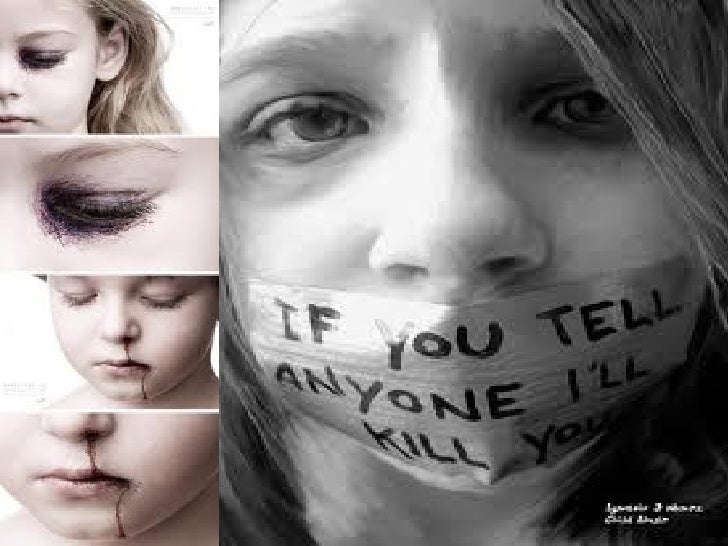 These factors can make it seem impossible for someone to leave an abusive situation.
These factors can make it seem impossible for someone to leave an abusive situation.
Disability
If someone depends on other people for physical support, they may feel that their well-being is directly tied to their relationship; a lack of visible alternatives for support can heavily influence someone’s decision to stay in an abusive relationship if they have a disability.
Immigration status
People who are undocumented may fear that reporting abuse will affect their immigration status. If they have limited English proficiency, these concerns can be amplified by a confusing and convoluted legal system and an inability to express their circumstances to others.
Cultural context
Traditional customs or beliefs may influence someone’s decision to stay in an abusive situation, whether held by the survivor or by their family and community. Learn more about abuse in different cultural contexts.
Children
Many survivors may feel guilty or responsible for disrupting their familial unit.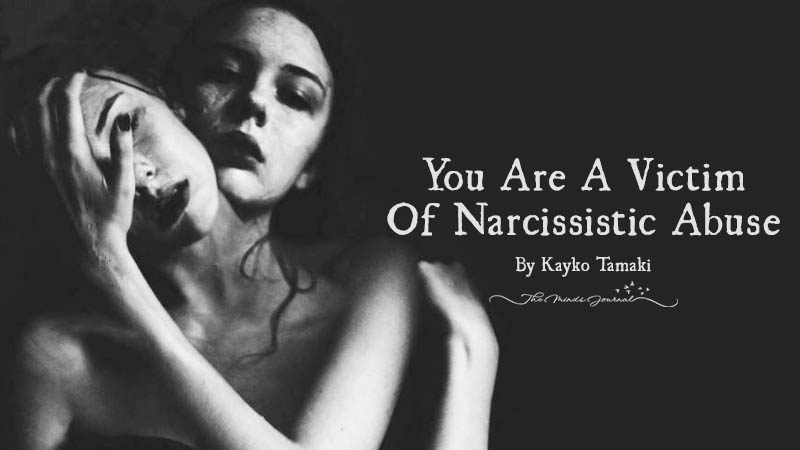 Keeping the family together may not only be something that a survivor may value, but may also be used as a tactic by their partner used to guilt a survivor into staying.
Keeping the family together may not only be something that a survivor may value, but may also be used as a tactic by their partner used to guilt a survivor into staying.
Love
Experiencing abuse and feeling genuine care for a partner who is causing harm are not mutually exclusive. Survivors often still have strong, intimate feelings for their abusive partner. They may have children together, want to maintain their family, or the person abusing them may simply be charming (especially at the beginning of a relationship) and the survivor may hope that their partner will return to being that person.
No matter the reason, leaving any relationship can be difficult; doing so in an abusive situation can feel impossible without the right access to support.
a quote mark iconUnderstanding the various ways that abuse appears and intersects can prepare you to respond to situations safely for yourself and others.
Why Do Survivors Stay Silent About Being Abused?
Survivors of abuse may stay silent, not discussing or reporting the abuse.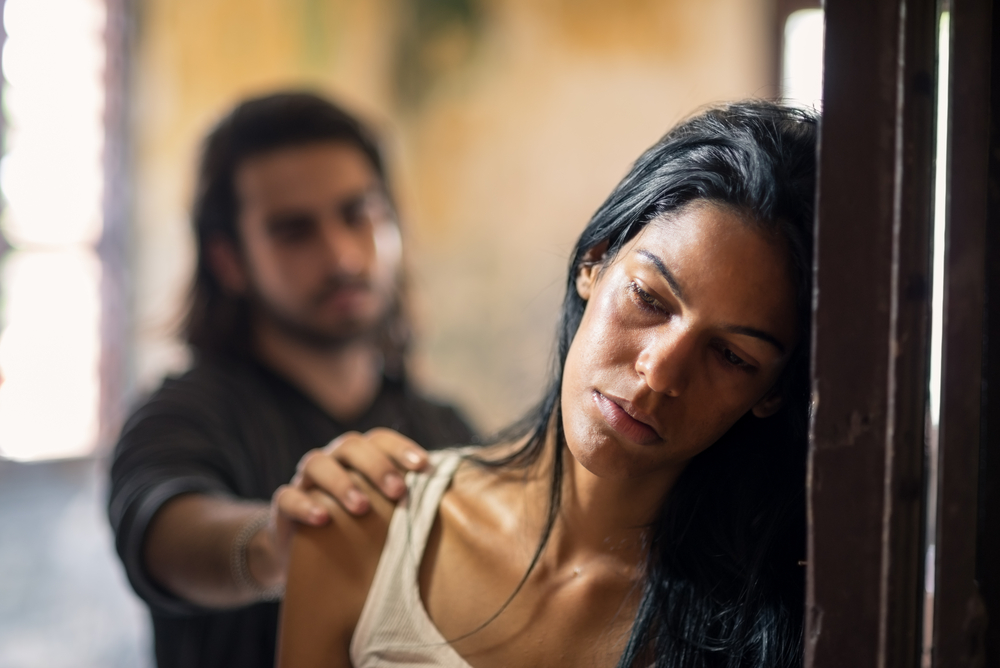 Even so, there are ways to help a loved one being abused.
Even so, there are ways to help a loved one being abused.
Abuse can come in many forms, from physical and sexual abuse to mental or emotional abuse. It might be domestic abuse or intimate partner violence, or come from a parent, caretaker, or someone else in your life.
Sometimes it can be very difficult to know whether a loved one has experienced abuse. Survivors of abuse may or may not show outward signs of experiencing abuse. They may stay silent and choose not to tell others about the abuse — including authorities.
However, offering appropriate support to a survivor of abuse without judgment is critical to their safety and recovery, whether they choose to report their abuser or not.
Along with offering support, loved ones of abuse survivors can help them access vital resources.
This article focuses on adult survivors. If you’re concerned about a child or teenager being abused, help is available. You can also call or text the Childhelp National Child Abuse Hotline at 800-422-4453.
Quick exit
Press the “Quick exit” button at any time if you need to quickly exit this page. The button can be found at the end of multiple sections. You’ll be taken to Psych Central’s landing page instead.
Alternatively, if you’re on a computer with an external keyboard and you want to quickly close this tab, try using the following keyboard shortcuts:
- Windows or Linux: Ctrl + W or Ctrl + F4
- Mac: ⌘ + W
For more tips on safety plans and safer browsing, consider visiting the National Domestic Violence Hotline.
Quick exit
Some abuse survivors may not speak up about their experiences for a variety of reasons. Abuse survivors who choose not to disclose their experiences of past or current abuse are sometimes referred to as “silent victims.”
Domestic violence help
If you’re experiencing domestic violence, support is available:
- You can call the National Domestic Violence Hotline at 800-799-7233 for free, confidential care and support 24/7.
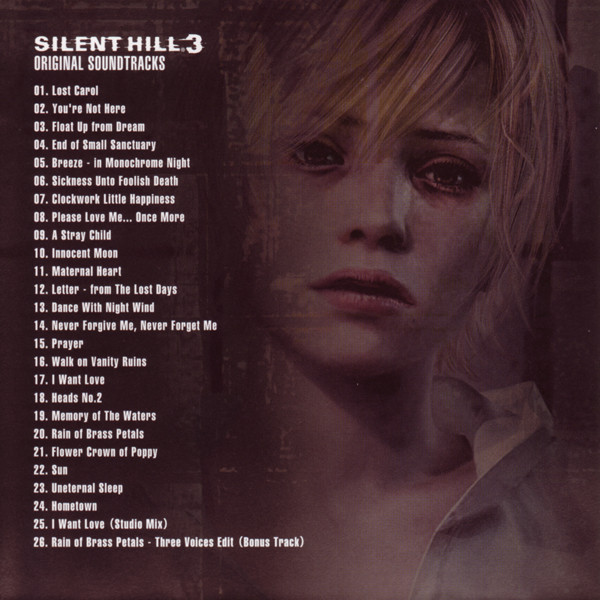
- You can call loveisrespect.org at 866-331-9474, or text “LOVEIS” to 22522 for support if you think you could be in an abusive relationship.
In addition, you can visit the National Coalition Against Domestic Violence (NCADV), a domestic violence prevention advocacy group with a list of resources for relationship abuse help.
There are many types of abuse, which means that signs of abuse can vary and sometimes be difficult to recognize. Everyone’s situation is unique, which can make it more challenging to recognize when a loved one is being abused.
However, there are some general signs to watch for if you suspect someone is being abused:
- Isolation. Your loved one seems isolated from seeing you or other friends and family on their own.
- Physical injuries. They may have bruises, cuts, broken bones, or signs of being restrained, like rope imprints on their wrists.
- Behavior changes. They may suddenly start acting very different from what is typical for them, such as seeming highly anxious.

- Damage to personal property. You may notice their clothes or other personal belongings are damaged or broken, such as ripped clothes or holes in walls.
Remember, this list of signs of abuse is not complete. Many other signs also exist, ranging from subtle to more visible.
Survivors of abuse may not tell anyone about the abuse for a variety of reasons, including:
- Judgment. Sometimes, a survivor may be afraid that other people are going to negatively judge them.
- “No one will believe me.” They might think nobody would believe them if they did tell someone that they were abused.
- Safety. A survivor may be very afraid of their abuser and may fear for their safety if they open up about their experiences. It can be common for abusers to threaten their victims to keep them silent.
- Fear of punishment. A survivor may be afraid to say anything due to potential punishment, such as if someone is abused by a supervisor at work, a parent or caregiver, or someone in a place of authority.

- Shame. Shame can play a significant role in keeping survivors silent. Survivors may believe that the abuse was somehow their fault or that they caused it. They might also feel embarrassed or ashamed that they didn’t or couldn’t defend themselves.
In addition, survivors of abuse don’t always report abuse to authorities. These reasons can vary greatly with each person’s situation, with reasons that can be rather complicated for some. For example:
- They feel responsible. Sometimes, a person might not report abuse because they feel responsible for it.
- Downplaying abuse. They might downplay the abuse or not even consider that they were abused.
- Lack of support. In some cases, survivors might not have support to lean on. This could be a part of the abuser’s tactics, or it may be that the survivor withdrew from friends and family out of shame, for instance.
- Financial resources.
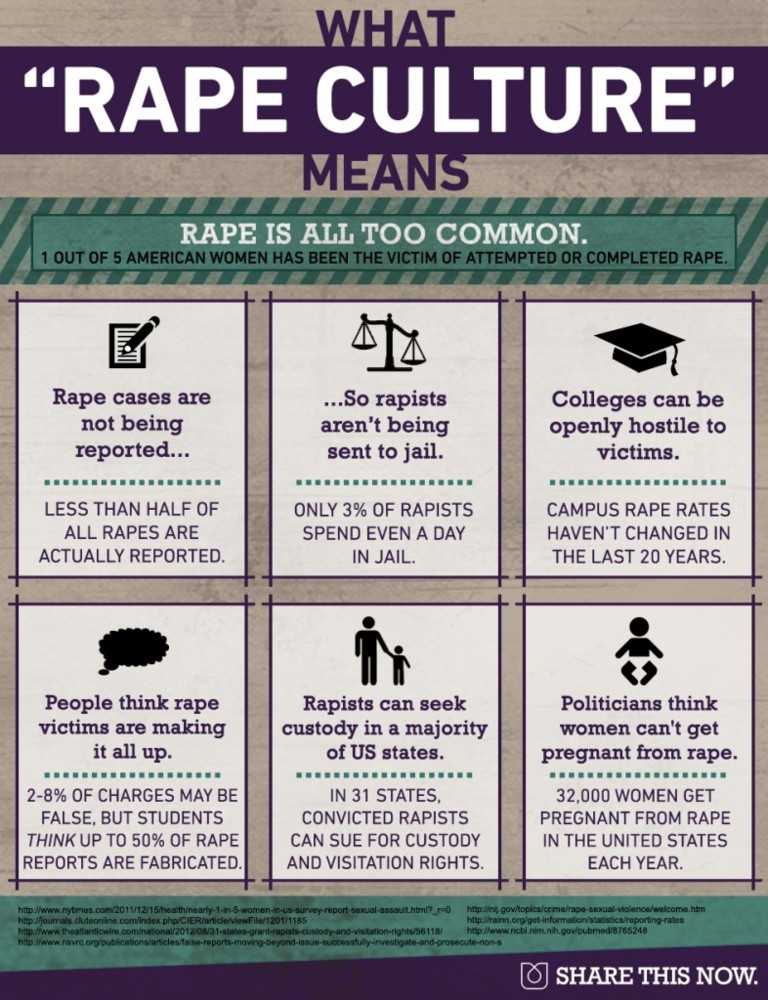 Some survivors of abuse may choose not to report the abuse because they don’t feel they have adequate financial resources to leave the abuser or hire legal counsel if necessary.
Some survivors of abuse may choose not to report the abuse because they don’t feel they have adequate financial resources to leave the abuser or hire legal counsel if necessary. - Fears for their children. Survivors may choose not to report abuse because children are involved. A parent may feel that reporting abuse could harm their children, especially if the survivor shares children with their abuser, or if their children are also being abused.
- No safe space. A person might feel they can’t report abuse because they don’t have a safe place away from their abuser to go.
Supporting a loved one experiencing abuse can be challenging but is vital to their safety and well-being.
Safety and supporting survivors of abuse
Even if you are concerned, it’s important to let your loved one lead the conversation. Ask them questions, but try not to pry or pressure them into opening up or leaving the situation if they’re not ready.
Pressuring a survivor to act before they are ready can be dangerous.
It may take a survivor many attempts to leave their abuser for good. The period after a survivor leaves can be the most dangerous and volatile time in the abuse cycle, especially if they are experiencing violence and physical abuse.
If you feel you or your loved one is in immediate danger, call 911 immediately.
Here are some key tips to consider for supporting survivors of abuse:
- Let them open up first. Be willing to let them open up and talk with you, but only if they choose.
- Provide a safe space. Offer a safe space — emotionally and physically, if possible, like your private home or a public place away from the abuser — for your loved one to talk about any abuse they’re experiencing.
- Listen without judgment. Be sure to actively listen without passing judgment or trying to shame them into leaving the situation.
- Be honest about your concern.
 It’s OK to let them know you’re concerned but that you ultimately support whatever they decide to do.
It’s OK to let them know you’re concerned but that you ultimately support whatever they decide to do. - Be clear about how you can help. You can let them know what type of help you’re willing to provide, such as shelter or offering money to help leave the situation if they choose to.
- Be available. It’s a good idea to let your loved one know you are available for them should they need you.
- Gently suggest resources. You can help your loved one connect with resources. You might suggest calling a national hotline for abuse survivors, or you might offer to connect them with more local resources, such as a shelter or support group.
As you talk with your loved one, you may want to consider providing some resources for them. Some helpful resources for abuse survivors include:
- National Domestic Violence Hotline
- National Sexual Assault Hotline
- National Child Abuse Hotline
- National Resource Center on Domestic Violence
- National Center on Domestic Violence, Trauma & Mental Health
Although some abuse survivors might choose to stay silent for a variety of reasons, there are many encouraging stories of survivors who do open up and seek help.
If you’re experiencing abuse, know that this behavior is not your fault, and you didn’t do anything to “deserve” abuse.
Supporting a loved one who is a survivor can sometimes be tricky. It’s important to let your loved one lead. You can ask them questions, but do not pry or pressure them to open up or leave the situation if they’re not ready.
Resources are available to help you or your loved one get to safety.
Speaking up about abuse takes tremendous courage. Though this can often feel scary, opening up can be an important first step to ending the cycle of abuse.
Sometimes, opening up to a therapist can help. If you are ready to get help from a mental health professional but don’t know where to look, you can check out Psych Central’s guide on finding support.
The darkness of consent: why children are silent about violence | Articles
The problem of sexualized abuse of minors is latent. Due to the taboo nature of the topic and existing stereotypes, it is difficult to talk about it openly.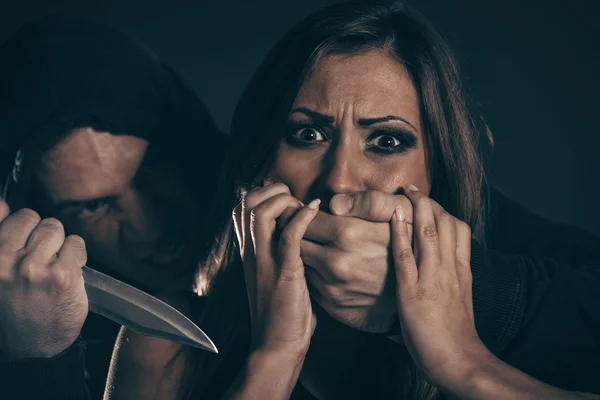 Two-thirds of girl survivors of violence are traumatized one on one without support. At the same time, more than a third of the victims admit that they have never been taught the basics of intimate security; only 6% had heard of the “run and tell” principle as children. More details - in the material "Izvestia". nine0005
Two-thirds of girl survivors of violence are traumatized one on one without support. At the same time, more than a third of the victims admit that they have never been taught the basics of intimate security; only 6% had heard of the “run and tell” principle as children. More details - in the material "Izvestia". nine0005
Who threatens minors
Olga Bochkova's Security Academy, the Consortium of Women's NGOs, and You Will Be Believed conducted a study on the extent of sexual abuse of children (available to Izvestia). A total of 14,210 responses were analyzed. 40% of the participants reported a traumatic experience. The most complete data are available for girls under 18 years of age.
The study showed that the overwhelming majority of criminals were adult males (82%). At the same time, sexual crimes against underage girls and girls are more often committed by adult acquaintances or relatives - almost 50% of cases. nine0004 Usually they show pornographic materials to girls (66%) and try to show them their genitals (more than 30% of cases).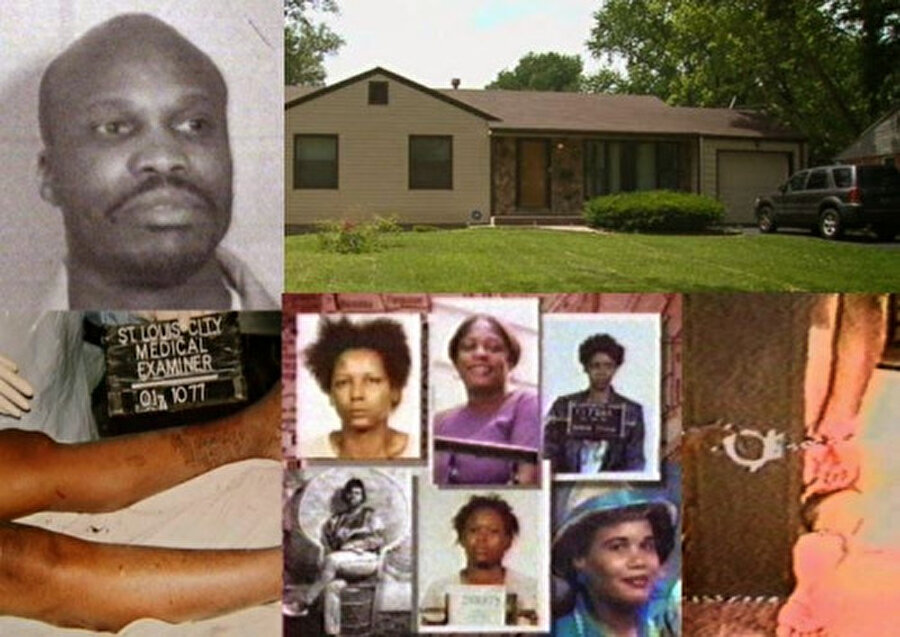 It is this category of men that makes more than half of the total number of all attempts of oral, anal and vaginal violence. Unfamiliar men account for 34% of all crimes against girls committed in person; on familiar children and adolescents - 14%, on unfamiliar children and adolescents - 2%.
It is this category of men that makes more than half of the total number of all attempts of oral, anal and vaginal violence. Unfamiliar men account for 34% of all crimes against girls committed in person; on familiar children and adolescents - 14%, on unfamiliar children and adolescents - 2%.
The darkness of consent
Photo: Getty Images/M-Production
The analysis of responses also showed that most cases of violence occurred in the home of the victim and in the place of residence or work of the aggressor. There is also a rather high percentage of cases of violence on the street (22.9%, of which 16.6% during the daytime) and in the entrance (10%).
What children lack in knowledge
Data show that the risk of becoming a victim of violence increases sharply between 4 and 6 years of age and peaks between 7 and 12 years of age; up to 15 years of age it remains at a fairly high level, and from 16–17 years of age it decreases significantly.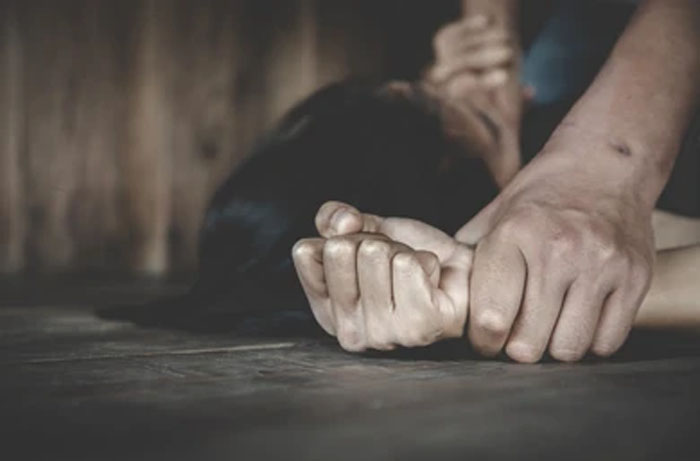 nine0004
nine0004
According to the participants, every third woman received sex education in one form or another. More than a third of the survey participants reported that they were not taught the basics of sexual safety at all; only 6% in childhood heard about the principle of “run away and tell”, and only 4% of respondents knew about the inviolability of intimate areas in childhood. At the same time, the results of the analysis showed that those girls whose sex education was engaged in were more likely to avoid violence in a situation of threat. nine0005
Children's sexual education is based on calm and reliable information about the human body, its structure with the correct names of all organs, including intimate ones, without euphemisms, says Olga Bochkova, a clinical and systemic family psychologist, founder and head of the Security Academy.
The darkness of consent
Photo: TASS/YAY
According to her, for a conversation with children, the wording can be as follows: “There are such organs, they are covered with a swimsuit, these parts of the body are called intimate.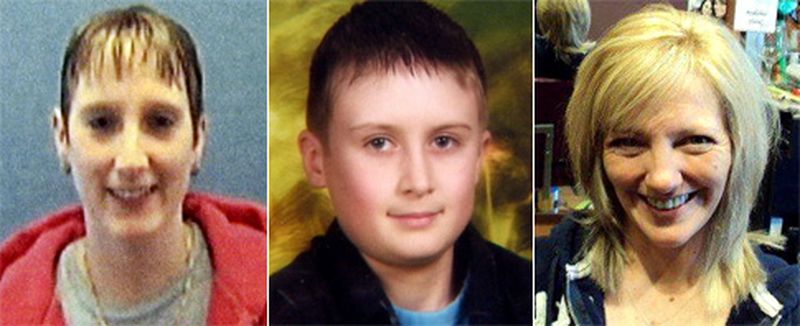 They have a special rule. If someone, a child or an adult, your own or someone else, asks you to show him your intimate areas or shows you mine, asks you to touch your intimate areas or asks you to touch him, asks you to take a picture, take a video, or himself shows a photo / video, even if he asks permission and it doesn’t hurt you, but it’s pleasant, you still can’t - it’s dangerous! We refuse, we shout “no”, we immediately run away from this person and tell everything to our parents.” nine0005
They have a special rule. If someone, a child or an adult, your own or someone else, asks you to show him your intimate areas or shows you mine, asks you to touch your intimate areas or asks you to touch him, asks you to take a picture, take a video, or himself shows a photo / video, even if he asks permission and it doesn’t hurt you, but it’s pleasant, you still can’t - it’s dangerous! We refuse, we shout “no”, we immediately run away from this person and tell everything to our parents.” nine0005
Depending on the age of the child, calm and reliable information about close relationships between people is added, including the four basic principles of intimate relationships - consent, safety, hygiene, responsibility.
Why violence is silenced
Research shows that discussing traumatic experiences is difficult. Regardless of the age and severity of the crime committed against them, 48% of those surveyed did not tell anyone about what had happened.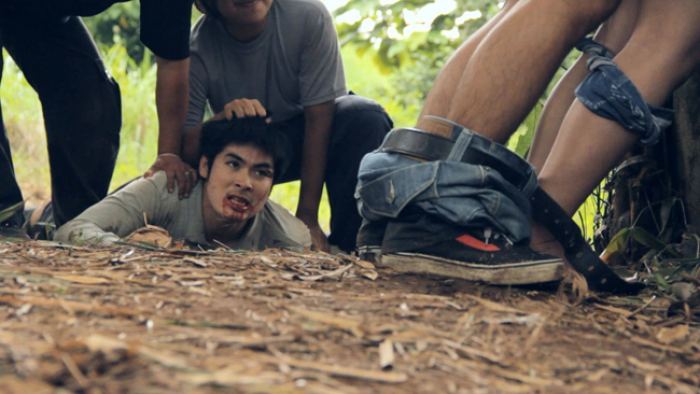 nine0004
nine0004
— In addition, 20.4% shared what happened more than 10 years later, so two-thirds of the respondents find themselves alone with the trauma of violence without receiving support. The most significant reason that the girls did not talk about what happened was shame - 28% of respondents. During the analysis, another reason for silence was discovered - fear for one of the parents, - Olga Bochkova said.
The darkness of consent
Photo: Global Look Press/GODONG/Pascal Deloche
Only a third of those who did tell relatives about sexualized violence shared their experiences with friends (38%), as well as with their parents. Only 16% of the respondents applied for psychological help. But only 3% of them turned immediately after the episode of violence. At the same time, the survey showed a significant dependence: those respondents who had sex education were more inclined to turn to a psychologist.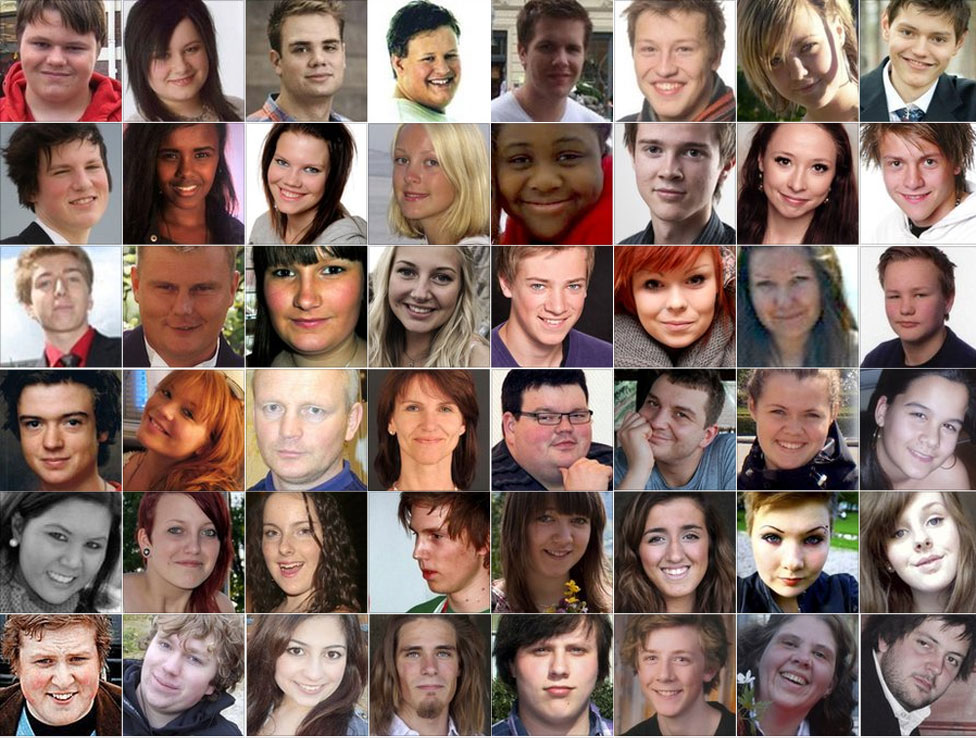
Concealment of the fact of violence exacerbates the consequences, especially when it comes to the psychological health of the child, draws attention to the psychologist, head of the psychological direction of work with children, adolescents, parents of the organization "You will believe" Ksenia Shashunova. nine0005
- The consequences in different areas are manifested very individually, but it can be noted, for example, that this increases the feeling of isolation, the feeling that "something is wrong with me." These feelings can haunt the child throughout childhood and pass into adulthood. There is a constant feeling of guilt, shame. The consequences can affect the feeling of one's body, the perception of oneself. If violence is committed in the family, from a loved one, then the child, as a rule, undermines the trust in the world, and this usually has consequences in adult life - difficulties in building various kinds of relationships, - the psychologist explained in an interview with Izvestia. nine0005
nine0005
How to ask a child about violence
If there are disturbing suspicions, Ksenia Shashunova advises to directly ask the child about violence, if the parent is sure that he can calmly talk about this topic.
— Many children deny everything at first. This does not mean that the child does not trust you, just through the efforts of the rapist, he can be convinced that they will not believe him, or that he himself is to blame, she explains.
The darkness of consent
Photo: Getty Images/AHMET YARALI
The child needs to be supported, let him know that you will be there. You can say: "I believe you", "It's not your fault", "It's good that you told me about it", "I will try to make sure that you are no longer in danger."
Harm can be caused by any accusations, direct or indirect: "Why did you go with him?", "Why didn't you tell me right away?" . ..". Talking in this way is not conducive to openness and hurts the child. nine0004
..". Talking in this way is not conducive to openness and hurts the child. nine0004
- Keep the conversation calm and open. Adults often start conversations from afar, using hints. This can confuse the child and interfere with a confidential conversation, the psychologist warned. “If you have suspicions, there is no harm in having an honest, respectful conversation, even if they are not confirmed. On the contrary, such a conversation is useful in any case, since it is an occasion to discuss with the child the topic of boundaries, safety, precautions.
Child and Consequence
Silencing crimes is also dangerous for another reason - it allows offenders to go unpunished for a long time. Only 3% of all victims filed an application to law enforcement agencies regarding the commission of sexualized violence or the threat of its commission, the study showed. As a result, only 1% of the criminals reported by the respondents in the survey were subjected to criminal punishment.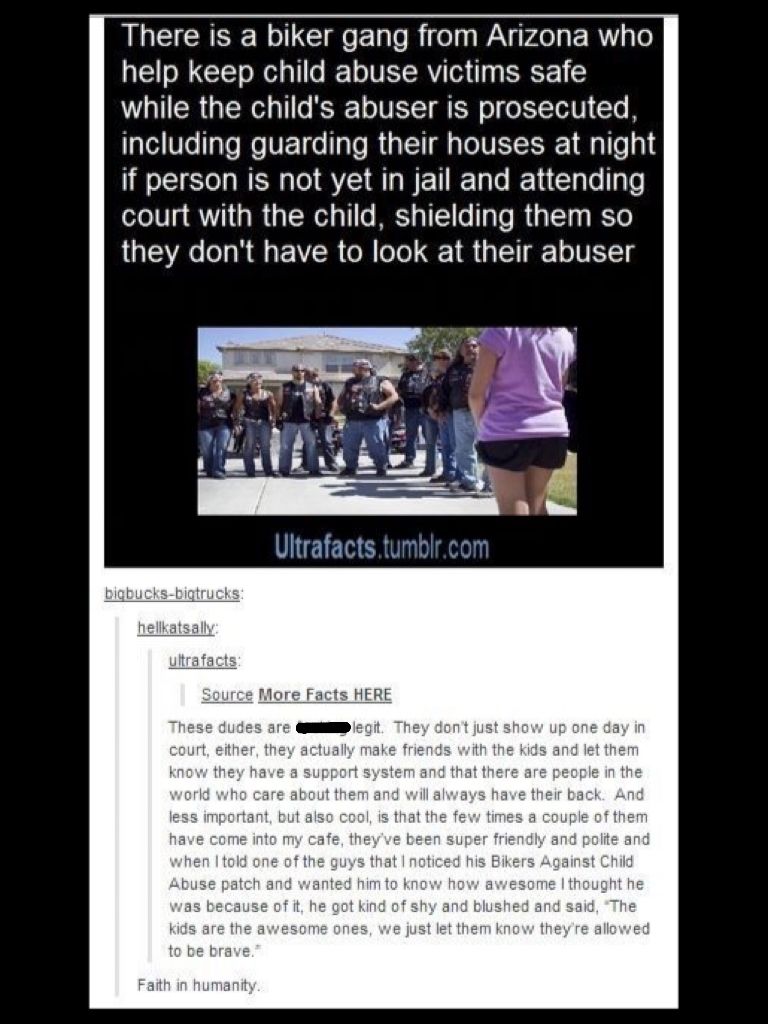
The darkness of consent
Photo: Getty Images/RapidEye
Participation in the investigation process is an extremely traumatic event for children, says lawyer Mari Davtyan, head of the Center for the Protection of Victims of Domestic Violence at the Consortium of Women's NGOs. In addition, the investigation procedure itself needs to be improved, taking into account the gender and age specifics of the victims.
- It is necessary to minimize the risks of re-victimization of minors - exclude the participation of a child in any investigative and other procedural actions in the presence of a suspect, refuse to conduct confrontations between a child and an adult accused, use a Gesell mirror (glass that looks like a mirror. - Ed.) and videotape, - indicates a lawyer.
Cases of sexualized violence against young children, as a rule, are classified as especially serious crimes, for which the term of criminal liability is 15 years.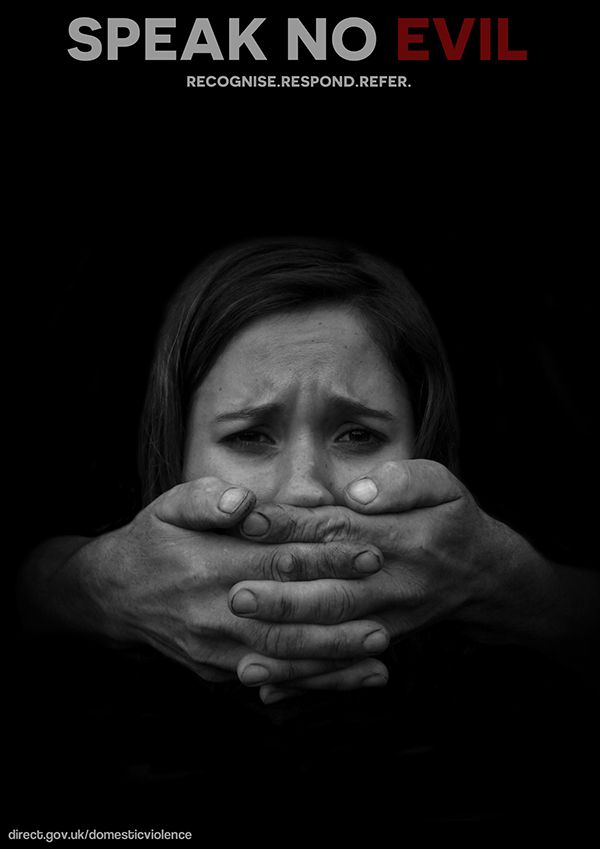 The expiration of such a period does not prevent the conduct of an investigation, the collection of evidence and the interrogation of witnesses . But in order for a person who committed a crime to be subjected to criminal punishment, a guilty verdict must be issued and come into force within 15 years from the date of the crime. nine0005
The expiration of such a period does not prevent the conduct of an investigation, the collection of evidence and the interrogation of witnesses . But in order for a person who committed a crime to be subjected to criminal punishment, a guilty verdict must be issued and come into force within 15 years from the date of the crime. nine0005
“Children, indeed, for many reasons (because of shame, fear of condemnation, misunderstanding of what happened, fear for their parents) do not immediately report that they have been subjected to sexualized violence,” agrees Mari Davtyan. — Proposals have been repeatedly made in the public space not to apply the statute of limitations to crimes against sexual freedom and the sexual inviolability of minors, as well as to crimes related to the organization of prostitution and trafficking in child pornography for children, or to count the statute of limitations from the age of majority of the victims. nine0005
The darkness of consent
Photo: RIA Novosti / Evgeny Biyatov
The expert adds that, according to the latest changes, for committing rape (Article 131 of the Criminal Code) or sexual assault (Article 132) against two or more minors, life imprisonment can be imposed deprivation of liberty. The same punishment is provided if the rapist already had a criminal record for a previously committed crime against the sexual integrity of a minor . In turn, the issue of applying the statute of limitations to a person who has committed a crime punishable by life imprisonment is decided by the court.
The same punishment is provided if the rapist already had a criminal record for a previously committed crime against the sexual integrity of a minor . In turn, the issue of applying the statute of limitations to a person who has committed a crime punishable by life imprisonment is decided by the court.
Stavropol experts explained why victims of domestic violence are silent
There is one rule: if a person is faced with aggressive behavior in his address, then in no case should you remain silent about it.
“It is important not to feel guilty about what happened. There are often myths in society that justify violence. To commit violence or to act in a different way is a person's choice. No need to shut up and keep silent about the problem. Often women are ashamed and embarrassed to admit to loved ones what is happening at home. The aggressors take advantage of this by continuing their actions. Support can be found in crisis centers and specialized helplines,” the psychologist said. nine0005
nine0005
According to the specialist, violence has no justification, just as alcohol does not remove responsibility for what happened.
“After all, under the influence of alcohol, a person does not beat everyone in a row, but only the weakest, right?” the expert explained.
If we are talking about a family with children, where one of the parents suffers beatings or pressure, then you should think not only about your own experiences. The main question that a person should ask himself in such a situation is: “How can observing what is happening affect children in the future?” And then take immediate action. nine0005
“It is important not to inform the aggressor in advance about the planned change of residence. According to statistics, the most violent crimes are committed when a woman announces a breakup, or immediately after. Therefore, this moment must be thought out in advance in order to protect yourself and your children as much as possible, ”says Elena Shmatova.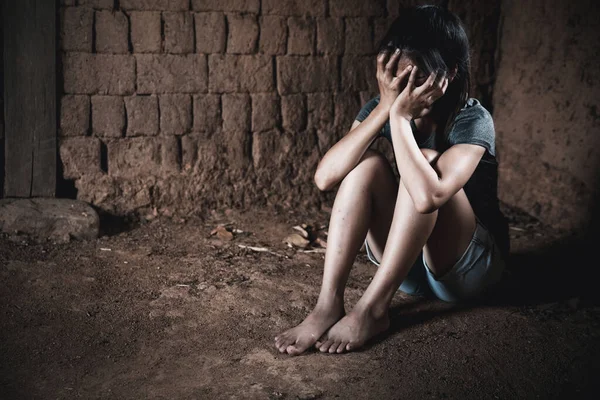
The psychologist believes that it is more difficult for men who have become victims of aggression to admit it. Elena Shmatova recommends putting your safety above public opinion. nine0005
What should a little man do?
A child suffering from domestic violence is more vulnerable than adults, as it is completely dependent on the aggressors. Earlier, Pobeda26 reported on a case in one of the Minvod families. It turned out that the hired nanny abused two children. She beat a two-year-old boy, and intimidated a seven-year-old boy so that he would not tell his parents anything. The culprit was brought to justice thanks to a video that the mother found on her eldest son's phone. nine0005
According to Svetlana Adamenko, Commissioner for Children's Rights in the Stavropol Territory, more than 300 children under 17 are subjected to violence every year in the region.
“I would say that geographically this problem is not connected in any way, it is typical for the whole of Russia. The Stavropol Territory does not occupy any leading positions here, although it has its own sad statistics of crimes, primarily against minors. According to law enforcement agencies, in 2020 alone, we lost more than 120 children under the age of 15. They died from so-called external causes - road accidents, water bodies, falling out of windows, suicides, adult oversight. As a result of murders in the family, 5 children died in our country in two years, ”the Ombudsman cites sad statistics. nine0005
The Stavropol Territory does not occupy any leading positions here, although it has its own sad statistics of crimes, primarily against minors. According to law enforcement agencies, in 2020 alone, we lost more than 120 children under the age of 15. They died from so-called external causes - road accidents, water bodies, falling out of windows, suicides, adult oversight. As a result of murders in the family, 5 children died in our country in two years, ”the Ombudsman cites sad statistics. nine0005
Svetlana Adamenko spoke about another form of violence against children - sexual. According to her, the vast majority of such situations are committed by family members or people from a close circle. Stepfathers, older brothers, uncles, grandfathers, friends of parents, neighbors become criminals.
“The topic of sexual violence is still a concern and the numbers are on the rise, unfortunately. Almost 150 children suffered under this article in two years. And the age of children is very small - from 3 to 12 years. As a rule, children are silent, and here it is very important to be vigilant, because behavior changes. An experienced psychologist should see a child who lives in stress and fear. Especially if there are traces of violence in the child. According to Russian law, teachers are required to report such facts to the guardianship and guardianship authorities for a conversation with parents, ”says Adamenko. nine0005
And the age of children is very small - from 3 to 12 years. As a rule, children are silent, and here it is very important to be vigilant, because behavior changes. An experienced psychologist should see a child who lives in stress and fear. Especially if there are traces of violence in the child. According to Russian law, teachers are required to report such facts to the guardianship and guardianship authorities for a conversation with parents, ”says Adamenko. nine0005
There are situations when sexual abuse is committed against a child, and the legal representative does not want to cooperate with the investigation, covers the culprit. In this case, by a court decision, the guardian is removed from the proceedings, the expert notes.
“Guardianship authorities act as legal representatives of the child. And we had such precedents in the Stavropol Territory,” the Ombudsman added.
According to Svetlana Adamenko, according to the law, a child who has reached the age of 14 can independently apply for help. nine0005
nine0005
“Go to the prosecutor's office, the police, guardianship and even to the court if there is a fact of violence. He can also inform the class teacher, neighbors, call the helpline,” Svetlana Adamenko explained.
Younger children are also abused. Most often, law enforcement agencies learn about this from the grandparents of the victims, or from neighbors.
“The most difficult thing is for kids, preschoolers, who are the most defenseless, especially disabled children, children with mild and severe mental pathology, children suffering from cerebral palsy. A lot of violence is committed against them, and they simply cannot stand up for themselves. It is very important to pay attention to these things,” says the Ombudsman for Children. nine0005
Recently Svetlana Adamenko analyzed the case of a boy whose mother died. He was left to live with his father, although his older brother was sent to his grandmother in Oryol. However, the man began to brutally beat the youngest child.
However, the man began to brutally beat the youngest child.
“Beatings were for any, even minor actions. For example, late for school, forgot to take something from home. The boy was covered in bruises, all the teachers and neighbors saw this, but no one paid attention. It was believed that the father is so strict, and even drinks. He is not at home for a month - he works as a truck driver, and when he returns, he begins to catch up on his "education". The boy could not stand it and called his grandmother in Oryol. She turned to me as the Commissioner for Children's Rights in the Stavropol Territory. We interfered, dad denied everything. We also dealt with the school, with the guardianship and guardianship authorities - why there was no appropriate reaction. When for the second time after all these conversations the boy was beaten again by his father, measures were taken to protect the child from the state,” the specialist said. nine0005
The injured boy was admitted to a rehabilitation center.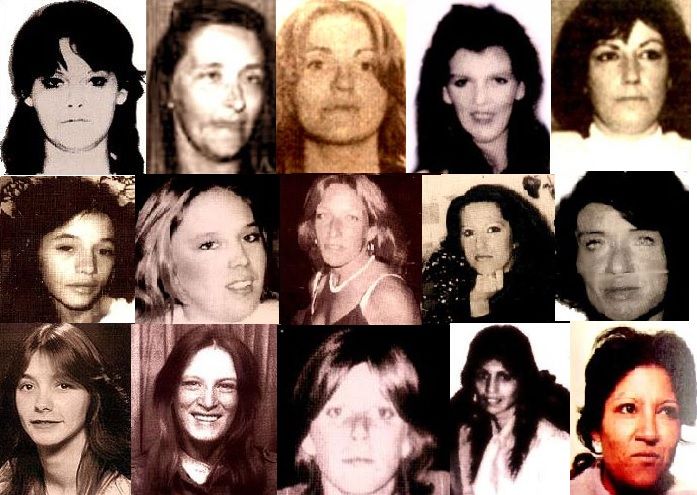 According to Adamenko, after that he did not want to return to his father.
According to Adamenko, after that he did not want to return to his father.
“A lot of joint work has been done. We interacted with the commissioner of the Oryol region and nevertheless managed to get my grandmother to come here. She took the boy under guardianship and took him to her, because otherwise disaster could happen, judging by all the bruises and the fear in the eyes that the boy had at the sight of his father, ”added the expert. nine0005
Now law enforcement agencies are looking into this situation, but for Svetlana Adamenko the main thing is that the boy was saved.
According to the expert, there is currently no effective protection against domestic violence in Russian legislation.
“Recently, several changes have been made to both the Criminal Code and the Administrative Code. Most cases either do not reach the court, or end with the reconciliation of the parties, which do not guarantee the safety of children in the future at all, ”said the Ombudsman.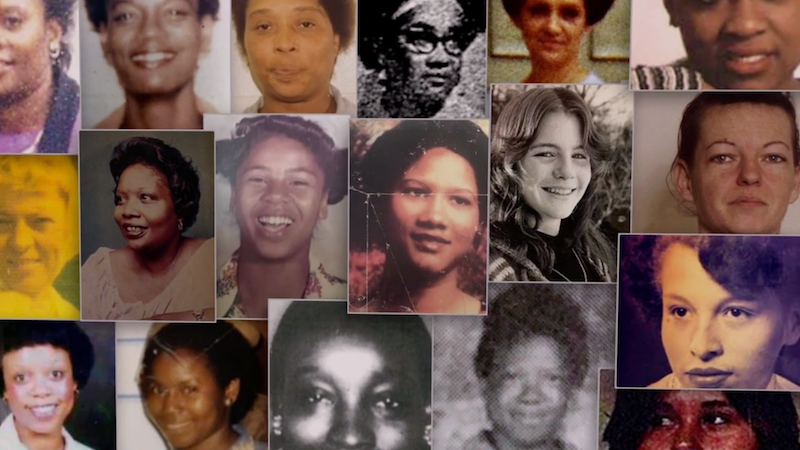 nine0005
nine0005
Over 50 people applied to the Ombudsman for Children in the Stavropol Territory in two years. They reported physical or psychological abuse or neglect of children.
“However, the Commissioner for Children's Rights does not replace executive authorities and is an additional mechanism for protecting children's rights. The all-Russian children's helpline is also playing an important role now. The number of calls is increasing from year to year. This was especially noticeable during the period of self-isolation due to the coronavirus pandemic,” says Svetlana Adamenko. nine0005
Where can a woman go for help?
There are crisis centers in the Stavropol Territory where victims of domestic violence can turn. There you can get psychological, physical and material assistance. These are the Budennovsky social rehabilitation center for minors "Iskra", the Pyatigorsk complex center for social services for the population, the Stavropol center for social assistance to families and children, and the Center for Psychological and Pedagogical Assistance to the Population.
There are also non-profit organizations: "House for Mom" in Essentuki and the diocesan shelter for pregnant women and women with babies "Mother's Hands" in Stavropol. The coordinator Larisa Oganyan spoke about the activities of the latter. According to her, orphans often go there.
“For the most part, orphans come, who live in hostels until they are 17 years old while they study, and then they have nowhere to go. For example, girls get pregnant. There are also situations when a woman with children comes to the city from the village, there is no money, no housing either, so at first they turn to me, ”said Larisa Oganyan. nine0005
The head of the shelter also shared the story of one of the guests, who used to live with her husband, four children and mother-in-law in the same apartment. The wife was taken to prison, and his mother drove the woman out into the street with the kids.
“This woman has only her mother in a distant village in Karachay-Cherkessia. As a result, the children were sent to their grandmother, and their mother was placed in an orphanage. Now she is already receiving benefits, we helped her rent an apartment, we carry food, we provide psychological support. We provide such assistance to everyone who has already left the shelter. We do not leave alone,” says the coordinator of the diocesan shelter “Mother’s Hands”. nine0005
As a result, the children were sent to their grandmother, and their mother was placed in an orphanage. Now she is already receiving benefits, we helped her rent an apartment, we carry food, we provide psychological support. We provide such assistance to everyone who has already left the shelter. We do not leave alone,” says the coordinator of the diocesan shelter “Mother’s Hands”. nine0005
Not only Orthodox Christians, but also people of other faiths can apply to such an organization for help.
Victim of abuse
One of the residents of Stavropol shared her story of how she became a victim of violence. The girl was in a relationship for three years with a young man who wanted to know about her every step. At first, she took prohibitions and increased attention from her partner as manifestations of attention and care.
“At first I couldn't put on some clothes, play computer games, go out with my friends without him. After that, everything turned into scandals, quarrels, I couldn’t put photos on social networks without him, he knew my passwords, read correspondence, and it was also difficult to take a walk with my girlfriends. And one day he raised his hand to me: "because he pissed me off." He was able to convince me that I really went too far and “brought” him, but then, when this began to repeat itself, I realized that this was an unhealthy relationship, ”said a resident of Stavropol. nine0005
After that, everything turned into scandals, quarrels, I couldn’t put photos on social networks without him, he knew my passwords, read correspondence, and it was also difficult to take a walk with my girlfriends. And one day he raised his hand to me: "because he pissed me off." He was able to convince me that I really went too far and “brought” him, but then, when this began to repeat itself, I realized that this was an unhealthy relationship, ”said a resident of Stavropol. nine0005
The story ended relatively well, despite the fact that the girl did not turn to anyone for help. She managed to part with the young man on her own, although it was difficult.
“We parted badly, or rather, parted for a long time. There were scandals, and then I left, and he could no longer do anything to me. Before that, he was waiting for me under the entrance and so on. After this relationship, I was afraid to trust other guys and believed that I was to blame for everything, ”says the girl.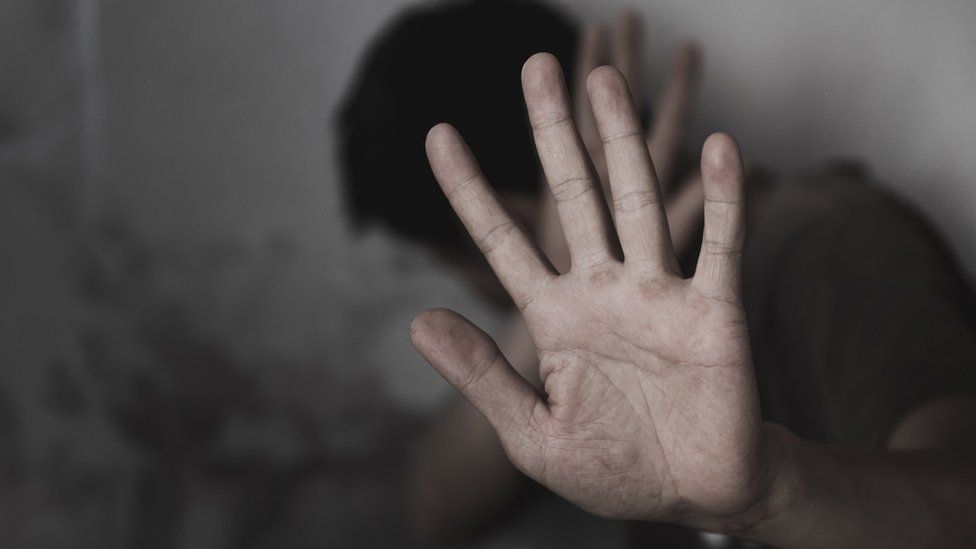 nine0005
nine0005
What to do?
According to psychologist Elena Shmatova, a person who has become a victim of domestic violence should, first of all, throw out all their emotions. Crisis support in this case can be provided by close people.
“These are friends, the most important thing is not to interrupt, to listen, not to give advice, not to justify the violence and not to say that you yourself are to blame. Attention will help create a psychological resource for further work, ”the specialist believes.
The psychological consequences for the victim can be quite serious. Victims of abuse often develop post-traumatic stress disorder, increased anxiety, and occasional bouts of negative memories.
“PTSD is not for everyone. First, the patient must be diagnosed by clinical tests. And after that, start work, decide whether to assemble a team of specialists for treatment or not. Maybe the support of a psychologist is enough to solve problems. Everything is individual, ”says the psychologist. nine0005
Maybe the support of a psychologist is enough to solve problems. Everything is individual, ”says the psychologist. nine0005
According to Elena Shmatova, women who have experienced domestic violence and left their partner begin to doubt their actions.
“The swing begins. They wonder if it was necessary to get a divorce, was I right, maybe I provoked myself, maybe it was worth it just to endure? It is during this period, about six months or a year after the divorce, that women seek help. It is important at this time to support them and reassure them,” said Elena Shmatova.
According to the psychologist, not all victims seek specialized help, because violence is to some extent legalized in society. It is normal for many people to raise their hand when raising children. The same is true in couples: beatings of spouses or cohabitants will not raise questions for some. This is one of the main problems - in perception. It can only be solved at the state level.


